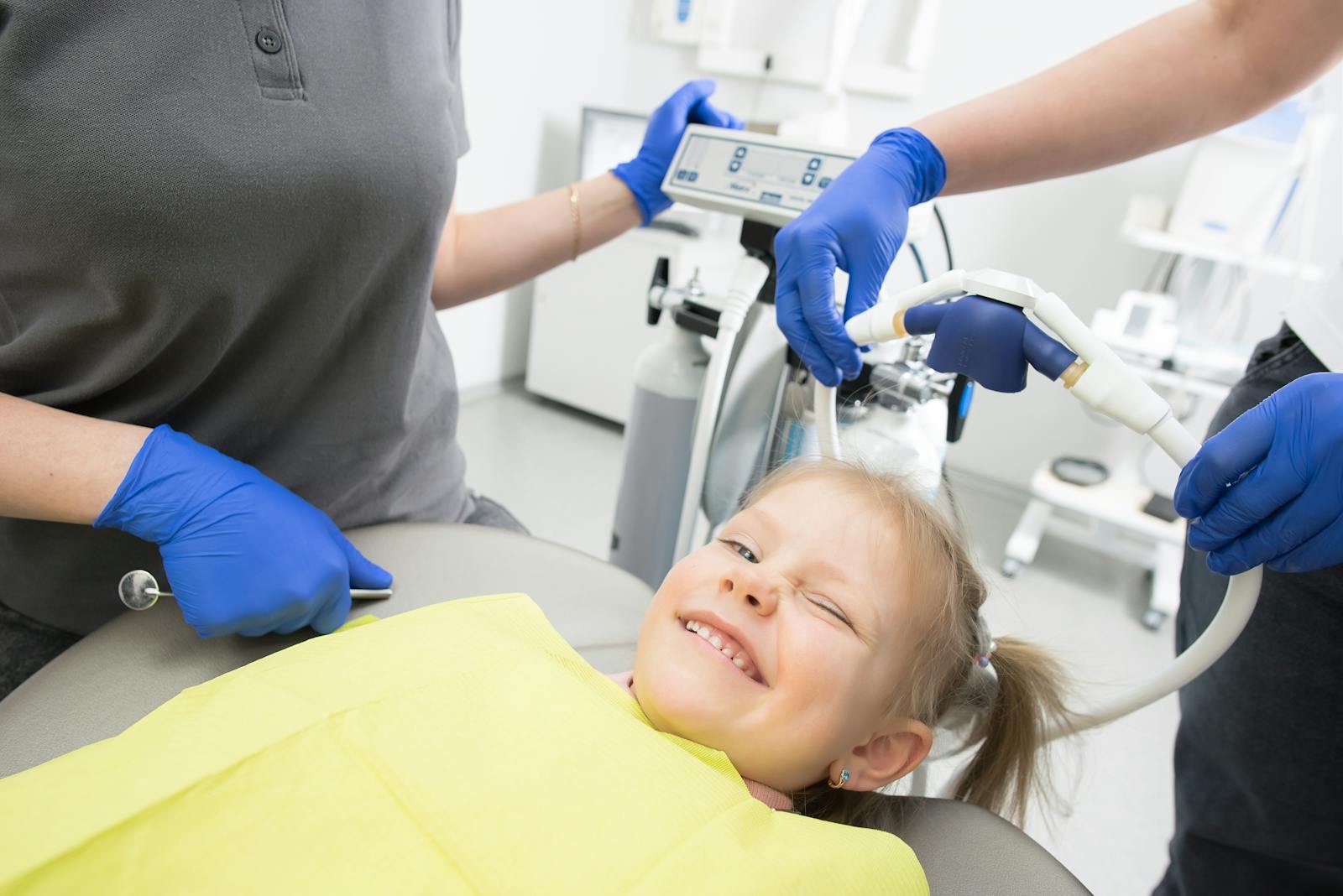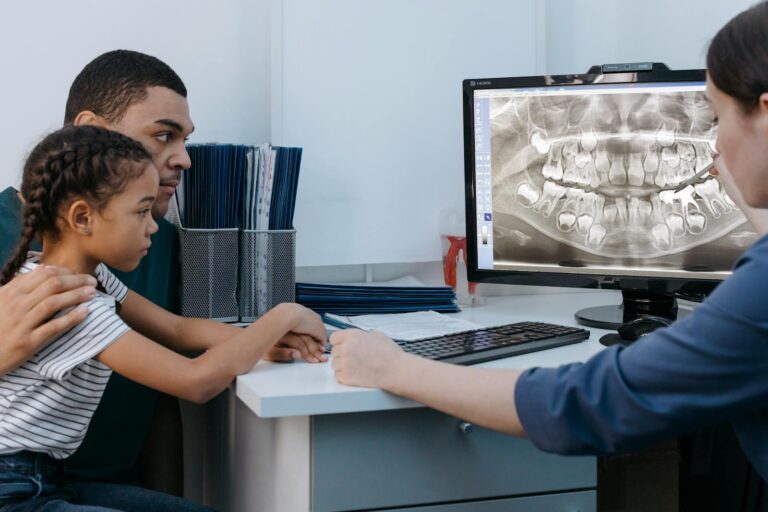What Age Should a Child First Visit the Dentist?
If you’re a parent, you’ve probably wondered: “When should I take my child to the dentist for the first time?” It’s a question I hear almost weekly, and honestly, it’s a great one—because the answer might surprise you.
According to the American Academy of Pediatric Dentistry (AAPD) and many pediatric dentists, your child should have their first dental visit by the time they turn one year old or within six months after their first tooth appears—whichever comes first.
I know, that might sound a little early—after all, how much dental care does a baby with only one or two teeth really need? But this recommendation isn’t just a guess or a trend. It’s backed by science, clinical experience, and one simple goal: to give your child the healthiest start possible.
Why by age one? Because oral health starts before all the baby teeth are in. The earlier we can check the teeth, gums, jaw development, and oral habits, the sooner we can prevent small issues from becoming bigger problems down the road.
Let me put it this way:
You wouldn’t wait until your child’s five-year-old check-up to start seeing a pediatrician—so why delay dental care?
Your child’s first visit isn’t about drilling or deep cleanings—it’s about laying the foundation for a lifetime of good oral habits, comfort in the dental chair, and confidence in their smile.
Yes, even at just one year old, your child is ready—and we’re ready to welcome them.
But wait… why so soon?
I get it. At one year old, your child can barely say “tooth,” let alone brush one. But here’s the truth: early dental visits aren’t about cleaning teeth—they’re about prevention, education, and confidence-building.
Let me break it down a bit:
To Catch Problems Early—Before They Become Problems
Tooth decay doesn’t wait until your child is in school. In fact, **early childhood caries** (aka baby bottle tooth decay) is one of the most common chronic diseases in children under six. By age three, some toddlers already have cavities that need fillings or even crowns.
That first dental visit gives us a chance to catch the earliest signs of trouble—and stop them in their tracks.
To Build Positive Associations with Dental Care
A first visit at age one is more of a “happy visit.” We introduce the dental chair, show them some cool tools (the little mirror is always a hit!), and let them sit on mom or dad’s lap if needed. No pressure.
Compare that to a first visit at age five, when the child might already have toothaches, dental fear, or both. That’s a much tougher starting point.
To Coach Parents
How to clean tiny teeth, what kind of toothbrush and toothpaste to use, what foods to avoid, how pacifiers or thumb-sucking affect development—these are things many parents just don’t get clear advice on. That first visit is as much for *you* as it is for your little one.
What happens during the first dental visit?
Honestly? Not much poking or prodding.
It’s more like a mini-orientation:
– We examine the baby’s teeth and gums (gently).
– We check for early signs of decay or developmental issues.
– We talk about feeding habits, teething, oral hygiene routines, and fluoride.
– We answer any questions you have—no judgment, just real help.
This visit is usually short, relaxed, and sets the tone for a lifetime of better oral health.
A note to parents who think it’s “too early”…
Trust me, you’re not being overprotective. You’re being proactive.
As dentists, we’d *much* rather see a healthy, smiling one-year-old than a tearful four-year-old with cavities that could’ve been prevented.
So even if your child has just one tiny tooth poking through—that’s enough reason to book that first appointment.
Final Thoughts
When your child grows up thinking the dentist is a friendly face who’s part of their routine (not someone who shows up only when there’s pain), you’re giving them more than healthy teeth.
You’re giving them confidence, comfort, and a lifelong habit of taking care of themselves.
So go ahead—circle that first birthday on the calendar and make the call.
It might feel early, but it’s “exactly” the right time.






